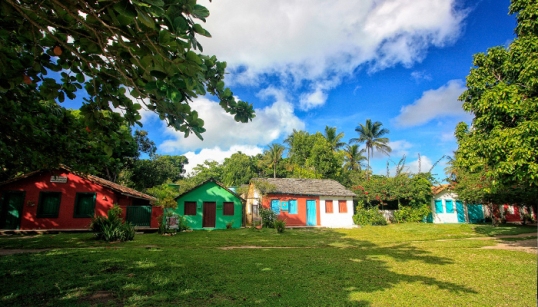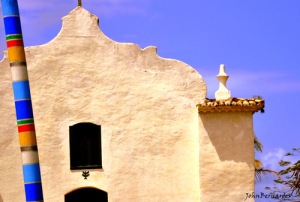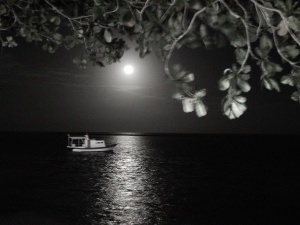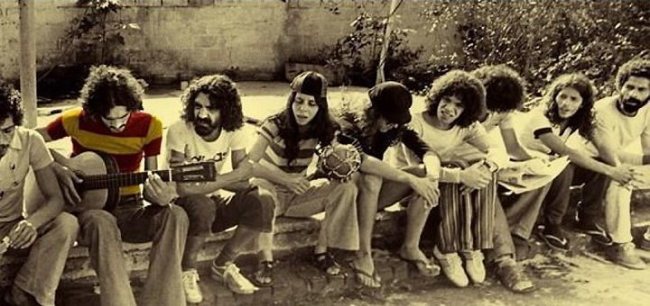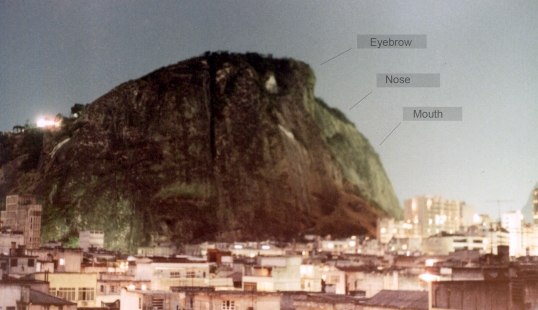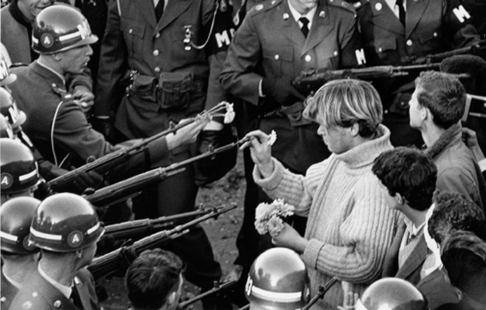Lost Samba – Chapter 18/02 – Adventures in South of Bahia’s paradise
The experience did not touch Edu as much as it did me. He was more sensible and I felt he was restricting himself by choosing to mix only with a boring university crowd. They were an important part of the conversations, but only marginally participant in the “secret society”. By not having a relationship with “the herb”, they missed out on an essential element, not because of the act of showing off that they were smoking weed, but because of the perceptual dimensions it seemed to open in conversations and in observations.
Edu was into conventional psychology, which was too intellectual for that time and place. Gabeira summed up the difference of perspectives with a catchphrase, “Without a hard-on [by which he meant desire], there is no solution.” This is what the people in the forefront of that quixotic revolution thought. It was about walking the walk, and not about talking the talk. We were seeking a world in which people lived according to their connection to the positive energy of the cosmos, and not a world ruled by patronizing dogmas. In this utopian summer interlude, who needed to rationalize things? Who needed the weight of history, of schools, of tradition and of science over their heads? Should that dictate what was right and what was wrong?
The drifting apart of my friendship with Edu reached a climax because of our house-sharers, three girls from Brasília he’d found by asking around. When I met the girls, I immediately found them unattractive and square, and therefore completely off my radar. Their feelings towards me were mutual: my exaggerated carioca attitude of being laid back and not giving a shit when it came to anything remotely practical contrasted with the girls’ efforts to be sociable and with their requests to share household chores. Perhaps they were correct in seeing me as a lazy, rich guy used to having a mum and a servant indulging my needs, but I was too immature to take this on board and simply dismissed them as being annoying and ugly bitches. After all I was only seventeen years old.
The girls ended up getting fed up with my laziness and one day after the beach, they demanded that I cook a meal. I warned them I didn’t know how, but they refused to listen and forced me to embark on my first-ever culinary adventure. The stove, such as it was, was a grill lying over some bricks in the field behind the house, and I had to search for some dry wood and paper to light a fire. The wind made this a hard task and when the flames started to go down I placed on the grill a battered pot, into which I threw some water, oil, salt and the spaghetti.
While waiting for the mixture to boil, I lit the roach in my pocket on the fire. Everything was going fine until I added the eggs: as I watched them drop into the boiling water, I noticed that the rest of the contents had become thick and gluey. Even to me it was obvious that pasta should not have that kind of consistency but the harder I tried; the more I struggled to stir my creation. What was going to be a pasta meal degenerated into an unedifying block of dough. To make matters worse, I noticed that the eggs had vanished from sight. I started digging into the “thing” in an attempt to save them, but then the fork got stuck, before vanishing into that amorphous blob.
When I got back to the house and tried to explain what had happened, I found that no one else saw the comic value. In addition to wasting their meagre groceries, I was forcing them to spend their precious money on a meal in the canteen next door. The mood turned sour, but for me there were better things to do than listen to those three girls yelling at me, especially because I had warned them about my culinary inability. That night came the final straw. After getting drunk, I walked the youngest, quietest, most receptive and prettiest one of the three back home. We kissed, and after we got into the house and I was close to finalizing things, the other two girls stormed in, coming close to physically attacking me. The following day they threw me out. Edu wasn’t happy either and sided with them.
Perhaps because of this event, Edu decided to return to Rio earlier than planned and I left for Trancoso, the next village down the coast, where I stayed for three more weeks. Despite carrying with me feelings of dejection, as soon as I set foot in Trancoso, I knew that I was onto something special. That tiny place was somehow even more magical and unspoiled than Ajuda, so isolated that the only way to get there was by boat or by trekking along the beach at low tide.
*
As Ajuda, Trancoso was also situated on a cliff top overlooking the ocean. It was tiny and consisted of an angular formation of huts bordering a sizeable green in the middle of the tropical forest. At the end of the field there was a simple-looking whitewashed colonial-era church, which closed the rectangle. I arrived there at the end of the afternoon and it was love at first site. The beauty of the place was mesmerizing; the long shadows of the golden sun created by the tiny houses were almost covering the field, The smell of the fresh grass in the shade was unbelievably refreshing in that hot and dry weather.
The purity of the air made the ocean in the background assume a marvellous dark turquoise tint as it reflected the deep blue of the sky. The combination of all of this made that small commune possess an scenic sophistication that hardly combined with its remoteness. Trancoso had the look and feel of some kind of special university campus for people in search of living life in the correct way. Here, the divide between locals and visitors was not so huge, as many of the outsiders had decided to drop out of city life and had chosen to make that place their home.
I headed straight to the only bar in the place, an open air one, where I stayed chatting and playing guitar until it got dark. As it grew late, someone asked me if I had anywhere to sleep. I said no and, after a lot of talking, it turned out that the only hut available was one that stood alone down by the beach. I could stay there for free, but the downside would be having to get there alone. Although moonless nights, like that particular one, were excellent for watching shooting stars, they were terrible for seeing even one meter ahead, and even worse for walking in the bush. My new friends explained how to find the hut, but the idea of having to wade through a river to get there didn’t sound good.
As the night advanced, the bar’s owner turned off his kerosene lamp but the music continued, breaking the silence of the rest of the village. Soon people started to wander off. Once everyone had gone his or her separate ways, I left my guitar in the bar and set off for my hut, guided by my sharp night vision and relying on my good hearing. When I reached the river and realised that the far bank was at least six meters distant, I considered giving up. Instead, I bit the bullet. The water was warm and the riverbed was muddy. As the river got deeper, croaking noises made my mind turn to snakes, strange animals and flesh-eating fish. At one point, the water came almost up to my chest and the current made it hard to balance the gear that I was carrying on my head. When I reached the other side of the river and spotted my new home, everything became easier as from then on I only needed to follow the sand-track until the hut’s door.
It was unlocked, and as I came in I saw a candle someone had left there and took out the box of matches I’d managed to keep dry. The flickering flame revealed a basic wooden shack stuck together with clay with a sand floor and a roughly thatched-roof, the only furniture was a rustic table and a chair. The wind blowing ashore was howling loudly, rattling the door and the windows in an eerie choreography. However, the candlelight made the hut feel surprisingly cosy. Still soaked, I opened my sleeping bag, stretched it on the floor and fell right asleep.
